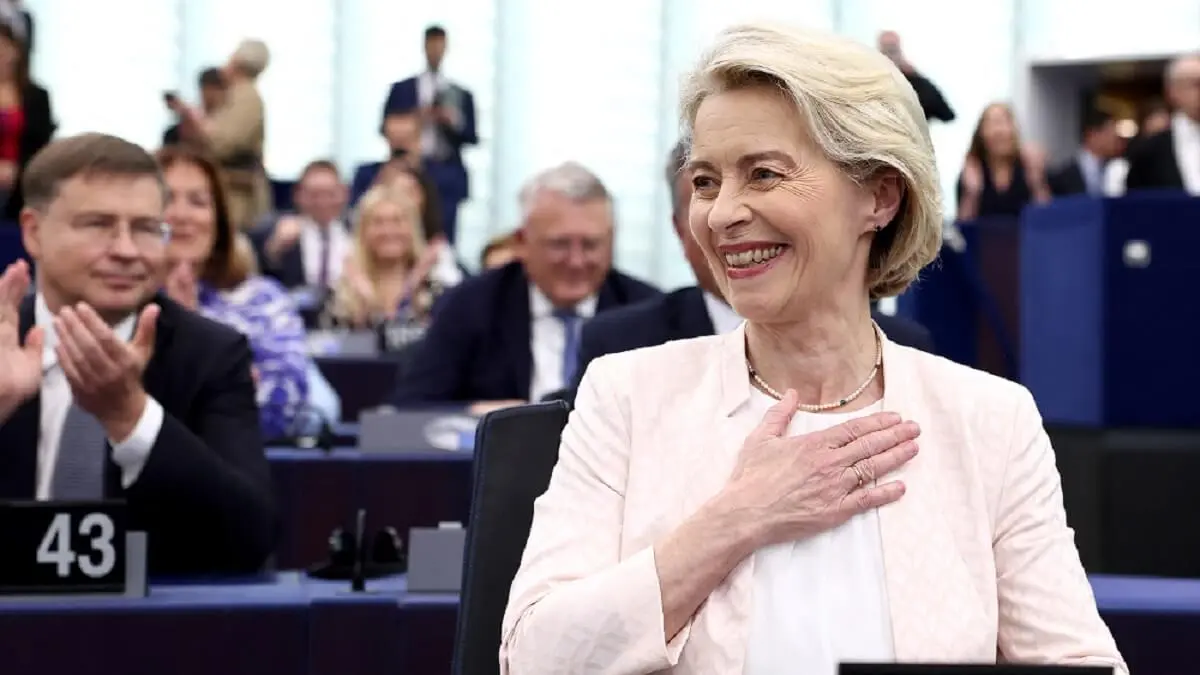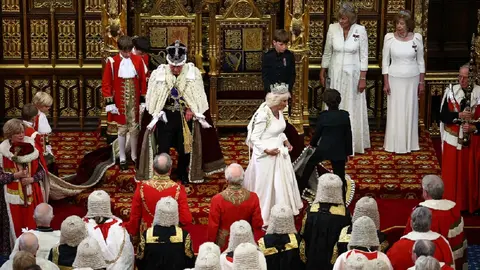Von der Leyen returns

What can we expect from Von der Leyen? Prior to her confirmation, she announced her programme, a set of proposals for the Commission's next mandate, a concerted effort to outline her vision and satisfy committed voters. The guidelines prioritise:
- Shaping a more competitive Europe that balances regulation and innovation, while facilitating the green transition.
- Boosting the EU's defence ambitions,
- Improving social and economic policies such as affordable housing and sustaining agricultural and environmental policies,
- The protection of European democracy and the defence of Europe's global and geopolitical interests.
In practice, the role of the Commission is expected to be enhanced in the next mandate, although there are also likely to be more obstacles from the European Council and Parliament, given the growing number and influence of extreme right and left-wing groups that are likely to add additional difficulty to the legislative process.
It should be noted that, during her first term, Von der Leyen made the Commission the leading element of the EU in an environment of frequent and novel crises. She was the main decision-maker during the COVID-19 crisis, helped coordinate Europe's response to Russia's full-scale invasion of Ukraine, and shaped the EU's economic risk reduction strategy with proactive management and its aggressive stance towards China, acting as Europe's ‘bad cop’ in the face of Beijing's coercive trade practices.
The Commission's role was also strengthened by her policy successes. In her first term, she oversaw the adoption of important measures on the digital and green transitions. The EU pushed for world-leading digital regulations on artificial intelligence, online content moderation and cross-platform competition, and incentivised semiconductor manufacturing. Green policies were prioritised, to reduce emissions and new emission reduction targets for cars, shipping and factories were activated.
Von der Leyen will seek to return to the path of strengthening the defence and economic security agendas, with a view to boosting Europe's defence capabilities vis-à-vis Russia and reducing the risk posed by China. On competitiveness, she will push for more innovation and industrial support, while promoting the green transition. To this end, she promised a "European competitiveness fund" and a "clean industrial pact" for the first 100 days of the next Commission's term of office, along with increased investment in infrastructure and energy technologies.
As a result of the very intense 2019-2024 legislative cycle, Von der Leyen and her Commission must now adopt a series of new rules. On digital policy alone, the to-do list is enormous. The EU is increasing its resources with new offices and hiring a veritable army of competition lawyers, which will increase the already enormous size of the Commission.
But von der Leyen's ambition will encounter limitations as member states and the Parliament seek to exercise their own power. Europe's political centre is not what it was in 2019, and EU members will want to assert their influence. Von der Leyen will have to contend with an increasing number of populist leaders at Council meetings. More right-wing governments are likely to emerge in the next five years, including in important countries such as France, as Marine Le Pen's National Rally moves ever closer to power. And as the Commission seeks to assume a greater role in traditionally member state-driven policies such as security and defence, von der Leyen will have to deal with more proactive member states, seeking concessions or derogations, or exerting their own influence at the EU level.
In a predictable change from her first term in office, emboldened far-right politicians will be more willing to influence EU policy than simply play the role of spoiler. The growing number and influence of far-right and far-right groups is likely to add additional complexity to the legislative process, and ad hoc coalitions will have to be used instead of the grand parliamentary coalitions of the past.
A stronger right-wing protagonism may hamper the Commission's regulatory ambition. Von der Leyen promised to continue the green transition, but EU green rules have already become a political target. The platforms of the centre-right European People's Party (EPP), Von der Leyen's own group and the more right-wing European Conservatives and Reformists have raised objections to burdensome new regulations, especially those associated with the green transition.
The competitiveness debate is, in large part, driven by this negative reaction to the Commission's regulatory appetite since, institutionally, it is the one designed to come up with new regulations and proposals. It is the only arm within the EU that can do so. But that desire will be a sticking point with member states' and parliament's aversion to seemingly onerous new rules.
Von der Leyen will also face challenges from outside Europe. "We have entered an era of geostrategic rivalries", the foreign policy guidelines point out. To the east, Beijing will continue to try to divide Europe and poison the EU's risk reduction agenda just as it is starting to take off. And supporting Ukraine against Russia's full-scale invasion will require sustained attention and funding.
In the West, von der Leyen cannot ignore the upcoming US elections. A Transatlantist at heart, in her first term she fostered a rapprochement between the EU and the US, benefiting greatly from a new pro-EU US administration. In the event of a second Trump administration, she is likely to face an uphill battle to strengthen transatlantic ties. Von der Leyen's confirmation this week is seen as an important step to set the EU up for success and avoid a setback. Rejecting her would have forced the European Council back to the drawing board to choose a new (and probably weaker) candidate, wasting more time on internal squabbling and politicking when predictability, not chaos, is paramount. It is not hard to imagine jubilation from Beijing, derision from Moscow and even snide remarks from Washington about EU dysfunction in the face of a ‘no’ vote. The facts will write the story.



